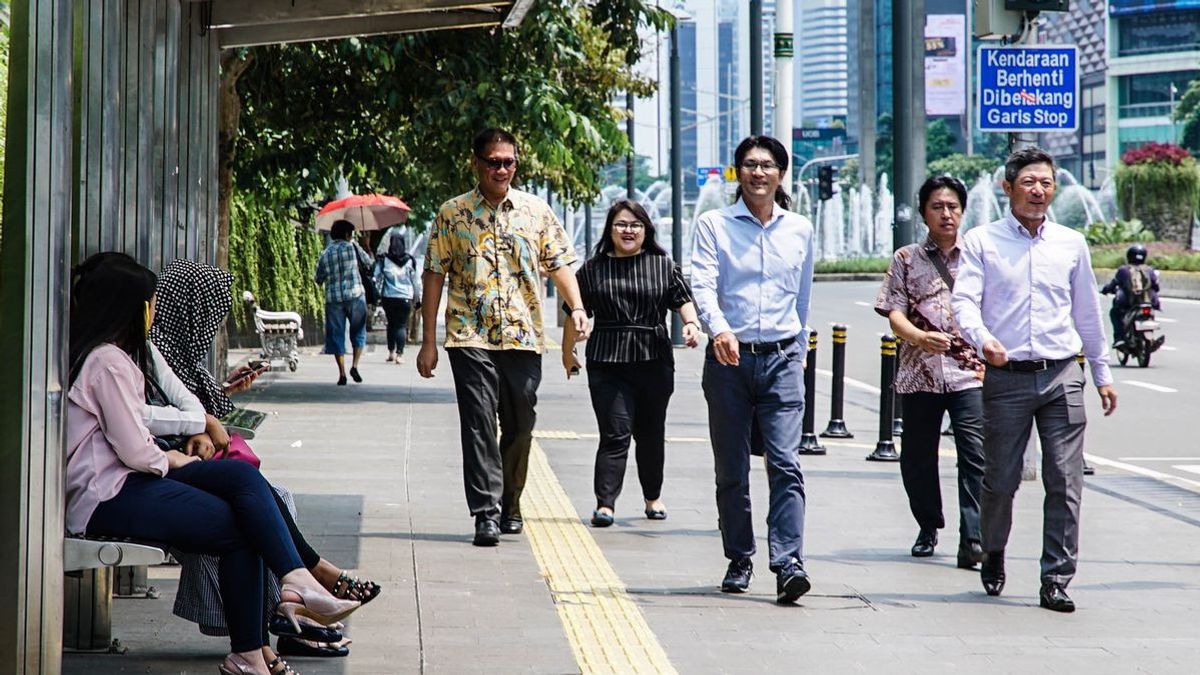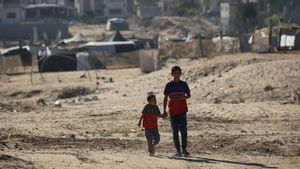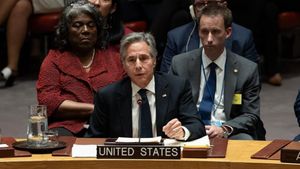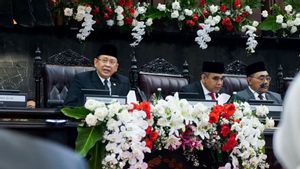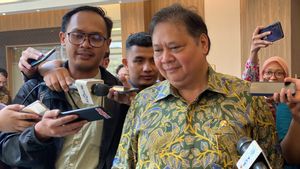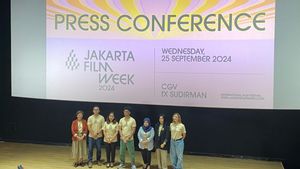JAKARTA - Member of Commission IX DPR RI Rahmad Handoyo suggested businessmen and office employees not to eat together after holding a meeting. The goal is that the clusters for the spread of COVID-19 in offices do not increase.
"I support eating together at the office, for example just abolishing the meeting after the meeting. Because when eating together everyone takes off their masks. Such conditions have the potential to spread the virus," said Rahmad as quoted on the dpr.go.id website, Wednesday, July 29.
In addition, Rahmad also mentioned that many office workers did not comply with health protocols, especially maintaining distance and wearing masks. One example, office workers often remove their masks when speaking in a meeting room.
"Make no mistake, trivial things like removing masks during a meeting have the potential to spread the corona virus from exposed people without symptoms (OTG). In the end, the company becomes a new cluster," he said.
Furthermore, this PDI-P politician asked the public, especially groups of office workers to continue to adhere to health protocols as long as a vaccine has not been found. As for office managers, they must pay attention to a number of things including the World Health Organization (WHO) appeal that says this virus can be transmitted through airborne.
"WHO has said about airborne, therefore circulation in the air must also be considered. Anyway, all health protocols recommended by WHO and the government must really be implemented," he said.
After all, he said, the addition of COVID-19 cases from this office cluster is actually quite ironic. Given that office workers are usually highly educated and should better understand the threat of the virus. "But the reality is that many offices are now becoming new clusters, especially in Jakarta," he said.
Previously, a member of the COVID-19 Handling Task Force Expert Team, Dewi Nur Aisyah, said that the COVID-19 cluster in the office space in DKI Jakarta had increased to 90 clusters. From this cluster, there are 459 employees who have confirmed cases of COVID-19.
"If we see, the number has increased 10 times. During the early PSBB period, where almost all employees worked at home, there were only 43. But, it turns out that during this transitional PSBB it increased by 416 to 459," said Dewi in a discussion at Graha BNPB East Jakarta, Wednesday, July 29.
In detail, there are 20 clusters with 139 cases in a number of ministries, 10 clusters with 25 cases in agencies or institutions, 34 clusters with 141 cases in offices within the DKI Regional Government.
Furthermore, there is 1 cluster with 4 cases in police offices, 8 clusters with 35 cases in BUMN, and 14 clusters with 92 cases in private offices.
Even so, Dewi did not mention which offices were the cluster for the spread of COVID-19. "This is not a story about who the office is, has the government or not, that's not what it is. Anywhere can happen. Because, when you start doing your activities, the risk is definitely higher," said Dewi.
The English, Chinese, Japanese, Arabic, and French versions are automatically generated by the AI. So there may still be inaccuracies in translating, please always see Indonesian as our main language. (system supported by DigitalSiber.id)
